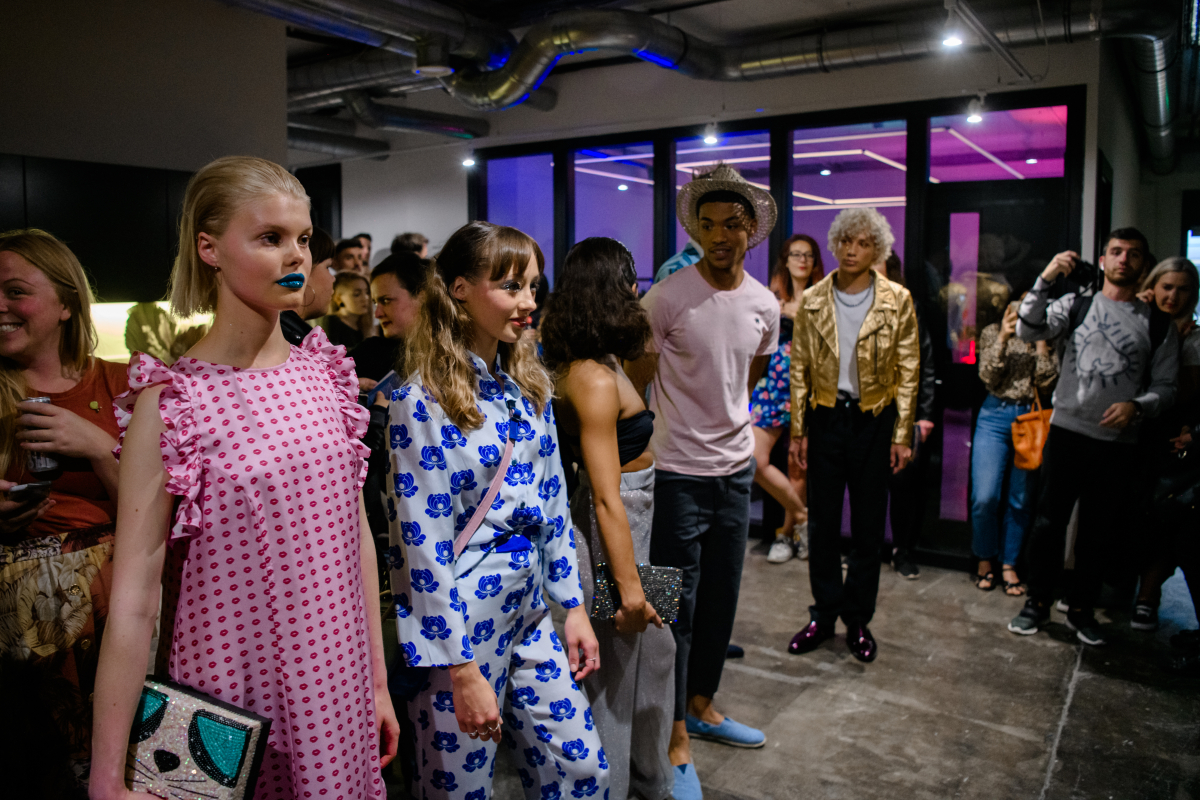This website uses cookies in order to enhance the overall user experience.
INSIGHT: Statistics back the power of creative industries
INSIGHT is a monthly series brought to you by Eat Work Art; bringing you current news and ideas from creative conversation.
Latest government statistics announced that the UK’s Creative Industries contributes almost £13 million to the UK economy every hour.
These findings highlight the real need to embrace the ever-growing diversity of skills and career opportunities available in the creative sector.
The creative industries make up 5.8% of the UK economy and are growing five times faster than the national economy.
Many of our residents have grown rapidly in size over the past 5 years, including Wolf & Badger who doubled within a year. Timothy Turner-Sutton, Director, comments:
“We’ve been growing quite quickly since we moved to Netil House, especially through the businesses that we’ve met here. We’ve already had to move offices since moving in and are close to maxing out this space!
Apart from the collaborative and creative benefits of being a resident in the building, I think the fact that the spaces open up and change is great. It’s kind of like Lego where you can build it how you need. With our business evolving, it’s been flexible and met our growth demands.”
To ensure the industry maintains its growth, harbouring creative talent and supporting those who wish to develop their business is key. Eat Work Art recognises the need for non-traditional workspaces which foster skills, build networks and develop creative communities. These elements also lower the barriers for newcomers to enter the industry.
Film, TV and music made-up 62% of the overall contribution alone, proving that the UK continues to nurture world-leading talent.
There has been an exciting development from traditional practices such as art, fashion and photography to embrace the digital revolution of graphics, experiential lighting architects, artificial intelligence and VR. There are jobs available now that just did not exist a decade ago. Eat Work Art residents are at the forefront of their fields and range from playwrights, animators, designers, sound engineers, publishers and app creators.
There has been a huge shift over the past 10 years catering to innovative creatives, Leo Lawson O’Neil, Director and Founder of Eat Work Art notes that: “The first building we took on - Netil House, was abandoned, as were so many in the area. Our very first residents were primarily artists, musicians and small creative businesses. Over the years demand has grown not only from traditional creative practitioners but from inspiring individuals and companies redefining the boundaries of the creative industries.
The exciting thing is that our sites still keep creativity at their heart. We attract and cater to engaged creatives who value wellness and lifestyle. That’s very much what our audience and residents at Eat Work Art are all about.”
Eat Work Art provides 163,000 sq. ft. in creative space, which has grown by 230% since 2010.
William Russell, Lord Mayor of the City of London spotted the need for a dynamic work environment to support creative skills in his lecture on ‘Culture, Creativity, and the Culture Mile’, he said:
“The world of work is experiencing a revolution. No longer do academic achievements guarantee successful employees; rather, those who have ‘fusion skills’ - creativity and communication, presentation and problem solving - promise to deliver better business growth.”
“Employees are increasingly attracted by socially purposeful organisations… location plays a big part in attracting creative talent… talented people are attracted to buzzy, vibrant 24-hour places that offer a range of amenities.”
All our studios are within a serviced building, with 24/7 access, onsite cafés, bars, restaurants, wellness and retail offerings.
Whether a company is an aspirational AI startup or vibrant fashion brand, what binds creative leaders together is a sense of shared purpose that is grounded within a creatively conducive environment. A workspace which provides a sense of identity, unique culture, a harmonious atmosphere and allows its residents to create, will nurture creative talent.

